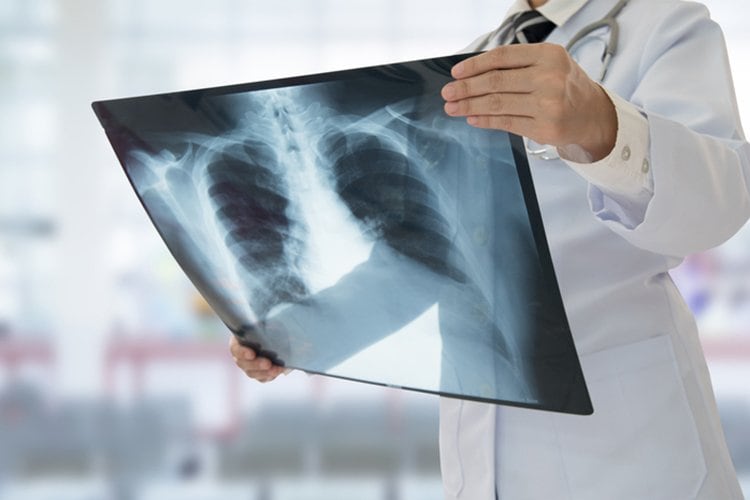Why Should I Get a Lung Screening?

November is Lung Cancer Awareness Month. Did you know that some people at high risk for lung cancer qualify for a lung screening that can help them get the treatment they need sooner?
Lung cancer is the second most common cancer in both men and women in the United States, not counting skin cancer, and is the leading cause of cancer deaths. Most lung cancer occurs in people 65 and older, with men more likely to develop it than women. American Cancer Society statistics show that black men and women are at even greatest risk, at 12 and 15 percent respectively more likely to develop lung cancer than white men and women. Fortunately, lung cancer screening is becoming more readily available.
A low-dose CT scan is available to those who qualify. The scan takes multiple pictures as you lie on a table, then a computer combines the images into a detailed picture of your lungs. Results of the scan will be reviewed, and further screenings ordered based on the test findings.
Lung cancer screening significantly reduces death from lung cancer in people with high risk factors; detecting the cancer at an early stage when it is most treatable improves the odds for positive outcomes and long-term cure. Simply put, screening saves lives.
Who should get a lung screening?
Current and former smokers are at the highest risk for lung cancer. If you meet all of the following criteria, you should talk to your doctor about scheduling a screening:
- Age 50 to 80 AND
- Smoked 15 cigarettes or more each day AND
- Smoked cigarettes for at least 20 years
Many private insurance plans and Medicare provide testing with a low-dose CT scan as a covered benefit if you meet certain criteria. It can help detect lung cancer before you notice any symptoms and help expedite any potential treatment that’s needed.
James Fenton, M.D., C.P.H.Q., is a board-certified, fellowship-trained thoracic surgeon with MyMichigan Health and a member of MyMichigan’s comprehensive cancer care team. As a thoracic surgeon, Dr. Fenton is dedicated to advanced and minimally invasive surgical management of a wide spectrum of thoracic conditions including disease of the lung, diaphragm, esophagus and the chest wall. He is dedicated to utilizing advanced surgical techniques, including robotic-assisted surgery, to improve quality outcomes and patient experience.